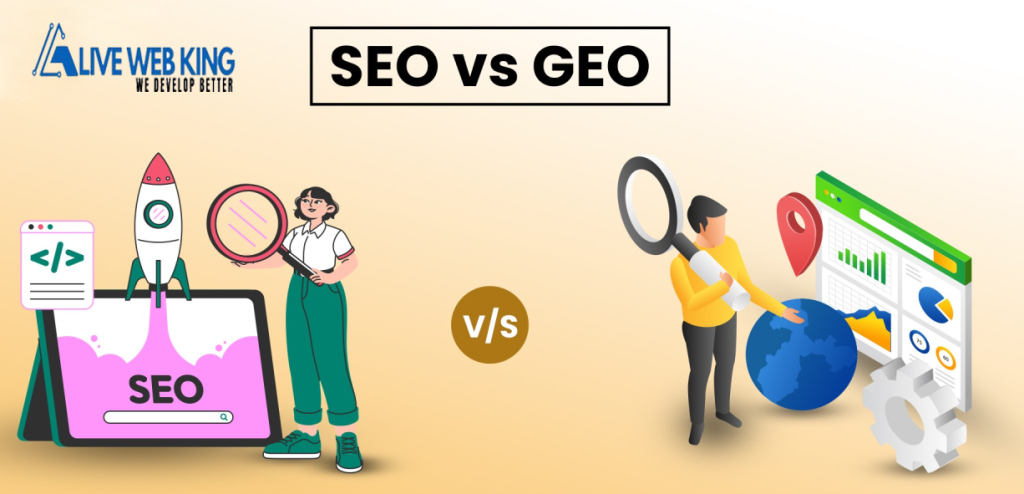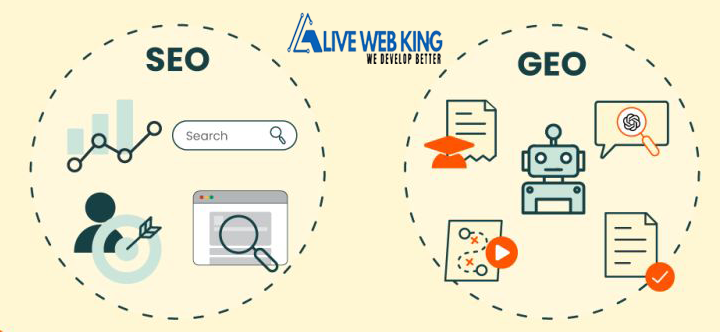GEO vs SEO: How to Optimize for AI Search Engines

The world of search engines is changing fast. You have probably heard about SEO and maybe you have even worked on improving your websites SEO to rank better on Google. But now there is something new on the block that is generative engine optimization or GEO. This is all about making your content friendly for AI search engines like ChatGPT Google search generative experience and others. In this guide you can learn everything about SEO and GEO.
What do you need to know about SEO?
Search engine optimization is the process of improving your website’s visibility in search engines like Google Bing and Yahoo. When someone types a question or keyword in Google the search engine scans millions of web pages to find the best matches. SEO is how you tell Google hey is my page exactly what the person is looking for?
Well typical SEO includes using keywords that people search for titles and descriptions that show up in results and other websites linking to your website. Your website should look good on phones. Fast loading pages are likely to rank better. Good content that is clearly helpful writing help users search for answers easily. SEO has been around for several years and is still important. But with the rise in AI search engines, we also need to look for something new.
What is GEO?
It stands for generative engine optimization, it’s a newer way of optimizing content not for typical search engines but for AI powered platforms like ChatGPT being AI googles AI overviews and perplexity AI. These platforms don’t just show you a list of links, but they also try to answer your questions directly. They summarize and combine information from multiple sources. That means your content needs to be written in a way that AI models can understand and also trust.
Why should you care about GEO?
Thinking about it when people ask a question on ChatGPT or Google AI is overview they might never visit a website. The AI just gives them a summary. If your content is not being used as a part of the answer, then means that you are missing out on visibility even if your page ranks #1 on Google. So, if your business depends on online presence you need to optimize for both Seo and Geo.
How to optimize AI search engines?
AI models love clear explanations. If your content is confusing, overly salesy or vague, it won’t be picked up. So, it is very important for you to use simple language to explain terms and ideas like you are teaching a beginner and stick to one idea per paragraph.
AI needs to understand the layout of your content. You need to use headings like H1H2H3 to organize your ideas and also bullet points and numbered lists for steps and tips. This makes it very easy for AI to find useful parts from your content.
AI models are completely well trained in human language not just keywords. So instead of just stuffing your content with repeated keywords right like you’re talking to someone.
Engines prioritize trustworthy and expert written content. You need to add the author’s name and credentials link to trustworthy sources and also use real statistics or studies when you make a claim. This will help AI determine whether your content is reliable or not.
GEO+ SEO Equals to a smart strategy

Another good news is you don’t have to choose between one or the other the best strategy today is combination of SEO and GEO. You can start with SEO practices to get ranked and then add Geo techniques so AI engines user content in the response. Together they give you maximum reach users who click search results and users who get AI generated summaries.
So above all you need to know that the future of search is generator. AI tools are completely changing how people find information. If you want to stay visible, relevant and competitive it’s time for you to optimize not just for SEO but also for Geo. To sum it up you can say that SEO gets you found, and GEO get you featured. Use both together and you will be in the best position to succeed in the new AI powered web.
